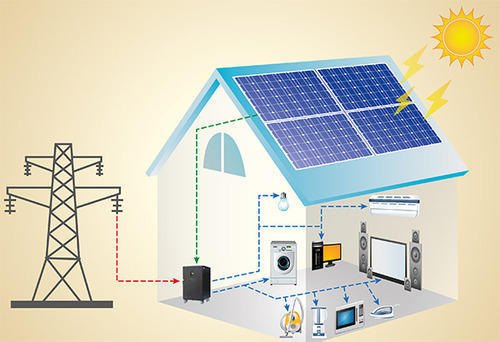In recent years, solar power energy storage systems have gained significant attention as a means to maximize the benefits of solar energy and provide greater energy independence.
These systems allow you to store excess energy generated by your solar power system during the day for use at night or during periods of low sunlight. Choosing the right solar power energy storage system involves considering various factors to ensure it meets your energy needs efficiently and effectively.
Understanding Solar Power Energy Storage
Before diving into how to choose the right solar power energy storage system, it’s essential to understand the basics of how these systems work. A typical solar power system generates electricity from sunlight using photovoltaic (PV) panels. This electricity can be used immediately in your home or stored for later use.
Solar power energy storage systems are designed to store excess electricity produced by your solar panels. This stored energy can then be utilized when the sun isn’t shining, such as during nighttime or cloudy days. By incorporating energy storage into your solar power setup, you can increase your energy independence and reduce reliance on the grid.
Factors to Consider When Choosing a Solar Power Energy Storage System
Selecting the right solar power energy storage system requires careful consideration of several key factors. Here are important aspects to evaluate:
1. Battery Type and Capacity
The heart of any solar power energy storage system is the battery. Batteries store the electricity generated by your solar panels for later use. Different types of batteries are available, including lead-acid, lithium-ion, and saltwater batteries. Lithium-ion batteries are commonly preferred due to their high energy density, longer lifespan, and faster charging capabilities compared to lead-acid batteries.
When choosing a solar power energy storage system, consider the battery’s capacity, which is measured in kilowatt-hours (kWh). The capacity determines how much electricity can be stored and used during periods of low sunlight. Assess your household’s average energy consumption to determine the appropriate battery capacity for your needs.
2. System Compatibility
Ensure that the solar power energy storage system you choose is compatible with your existing solar power setup. The system should seamlessly integrate with your solar panels, inverter, and other components. Some solar power systems come with built-in energy storage capabilities, while others require additional equipment for storage purposes. Consult with a professional installer to verify compatibility and ensure optimal performance.
3. Energy Management Features
Look for solar power energy storage systems equipped with advanced energy management features. These features enable you to monitor energy production and consumption in real-time, optimize battery charging and discharging cycles, and even prioritize critical loads during power outages. A sophisticated energy management system enhances the efficiency and reliability of your solar power setup.
4. Warranty and Lifespan
Investigate the warranty and expected lifespan of the solar power energy storage system. A longer warranty period indicates the manufacturer’s confidence in the product’s durability and performance. Lithium-ion batteries typically have a longer lifespan compared to lead-acid batteries, making them a more reliable choice for long-term solar power storage solutions.
5. Cost and Return on Investment (ROI)
Consider the upfront cost of purchasing and installing a solar power energy storage system. While solar power systems can be a significant investment initially, they offer long-term savings on electricity bills and potential incentives such as tax credits or rebates. Calculate the expected return on investment (ROI) based on your energy usage patterns and local utility rates to determine the economic viability of installing an energy storage system.
6. Scalability and Expandability
Plan for future energy needs by choosing a solar power energy storage system that is scalable and expandable. As your energy consumption patterns change over time, you may need to increase your storage capacity. Opt for a modular system that allows you to add more batteries or upgrade components easily without replacing the entire system.
7. Installation and Maintenance
Evaluate the installation requirements and ongoing maintenance needs of the solar power energy storage system. Proper installation by certified professionals is crucial for safety and performance. Additionally, inquire about maintenance procedures and costs to ensure the system operates efficiently throughout its lifespan.
Conclusion
In conclusion, selecting the right solar power energy storage system involves a comprehensive assessment of your energy needs, system compatibility, battery type, cost considerations, and future scalability. By investing in a quality energy storage system, you can maximize the benefits of your solar power setup, reduce reliance on the grid, and contribute to a more sustainable energy future.

